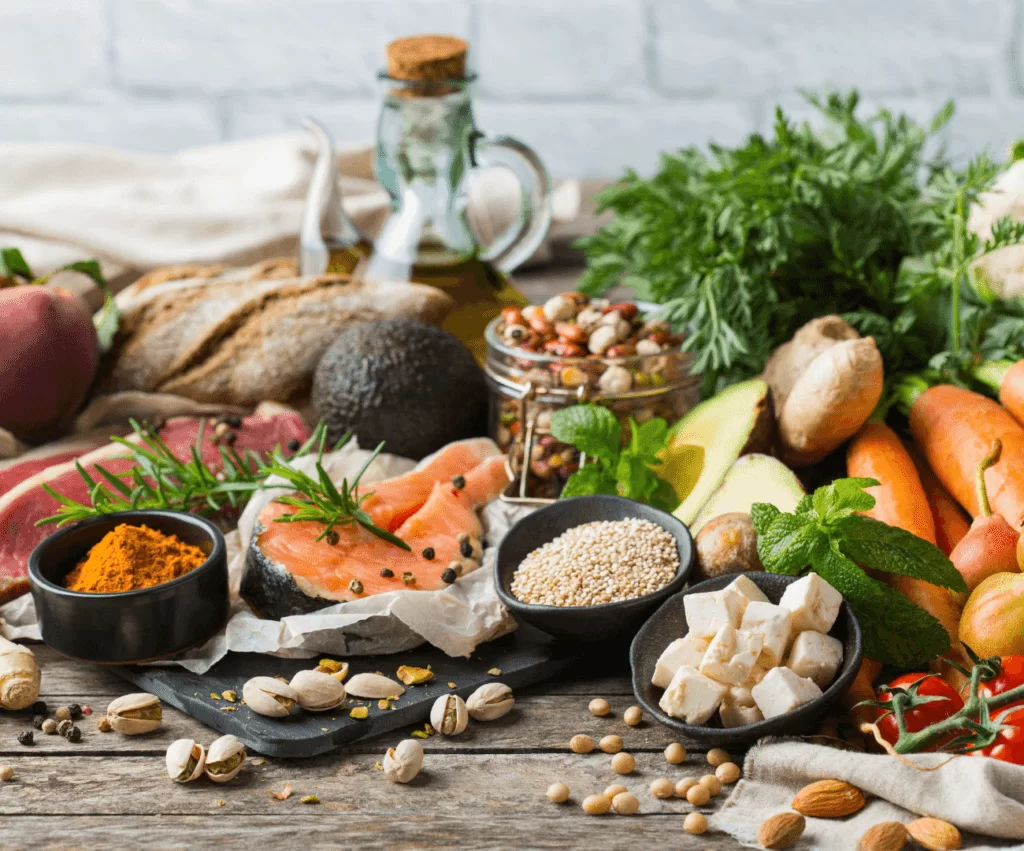In recent years, the flexitarian movement has been gaining more and more followers around the world. It is a diet that seeks to balance the intake of animal protein with a greater intake of plant-based foods, bringing benefits to both health and the environment. Today, we're going to explore more about what flexitarianism is, its benefits and how hybrid products can meet the demands of this new way of eating.
What is Flexitarianism?
The term "flexitarian" emerged in 2003 by American nutritionist Dawn Jackson Blatner. Flexitarianism is a dietary approach that prioritizes whole and minimally processed foods, but allows the consumption of meat and other animal products in reduced quantities. It is a diet that seeks to balance the intake of animal protein with a greater intake of plant-based foods, such as fruit, vegetables, legumes, grains, seeds and nuts.
Unlike vegetarianism and veganism, which completely eliminate the consumption of animal products, flexitarianism is a more flexible and accessible diet. The idea is that the individual can choose foods of animal origin consciously, without neglecting the benefits of plant-based foods.
Flexitarians, Omnivores, Vegetarians and Vegans
Flexitarians, omnivores, vegetarians and vegans are terms that describe different types of diets and lifestyles related to food.
- Omnivores are people who eat both animal and plant-based foods. The omnivorous diet is the most common among humans and includes meat, dairy products, fruit, vegetables, grains and more.
- Flexitarians are people who mainly follow a vegetarian diet, but occasionally consume meat or other foods of animal origin. Generally, they seek to reduce their meat consumption for reasons of health, the environment or animal ethics.
- Vegetarians are people who don't eat meat, poultry or fish. However, some vegetarians consume dairy products and eggs, while others do not.
- Vegans are people who do not consume any food of animal origin, including meat, dairy products, eggs, honey and animal-derived products such as gelatine. In addition, many vegans avoid the use of animal products in other areas of life, such as clothing, cosmetics and cleaning products.
In short, while omnivores eat meat and animal products regularly, flexitarians follow a mostly vegetarian diet with the option of eating meat occasionally. Vegetarians do not eat meat, poultry or fish, while vegans do not consume any animal products in their diet or lifestyle.
Benefits of Flexitarianism
Adopting a flexitarian diet can bring a series of benefits for health and the environment. The main benefits include:
Improved health: by consuming more plant-based foods, it is possible to reduce the risk of developing chronic diseases such as diabetes, obesity, high blood pressure and cardiovascular diseases. This is because these foods are rich in nutrients such as vitamins, minerals and fiber, which contribute to the proper functioning of the body.
Preserving the environment: meat production is one of the causes of deforestation, greenhouse gas emissions and excessive water consumption. By reducing meat consumption, you can help preserve the environment and reduce your carbon footprint.
Savings: plant-based foods are often cheaper than animal products. By reducing meat consumption, you can achieve a healthier and more balanced diet.
Tips for a good flexitarian diet
If you're looking to adopt a flexitarian diet, here are some valuable tips that can help:
- Start slowly: if you're used to eating meat regularly, it can be difficult to switch to a completely plant-based diet. Start by incorporating more vegetables and grains into your meals, gradually reducing your meat consumption.
- Plan your meals: plan your meals in advance to make sure they are balanced and varied. Make sure you include a variety of fruits, vegetables, whole grains and vegetable proteins in your diet.
- Try new recipes: try new vegetable-based recipes to keep your diet interesting and tasty.
- Be open to change: remember that changing your diet can take time and require adjustments. Be open to trying new foods and dishes and be patient as you make the transition to a flexitarian diet.
Hybrid products: a solution to flexitarianism
With the increase in demand for flexitarian foods, companies have been looking for alternative products to meet this demand. At New Max, it couldn't be any different!
Thinking exclusively of the public that values healthy eating, we have developed personalized solutions in Hybrid Products that combine the best of what exists in the world of animal and vegetable protein. Our portfolio includes hybrid hamburgers, hybrid sausages, hybrid mortadella, hybrid steaks and much more.
Hybrid products are an excellent solution for those looking for a more flexible diet without giving up the taste and texture of animal products. It's important to choose quality products and pay attention to their labels, avoiding ingredients of dubious origin.
At New Max, we are committed to offering quality solutions to meet the demands of flexitarian consumers. Our hybrid products are made with healthy and sustainable ingredients, ensuring a more balanced diet. Contact us and find out more about our hybrid product options!




